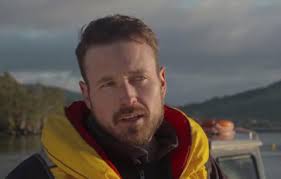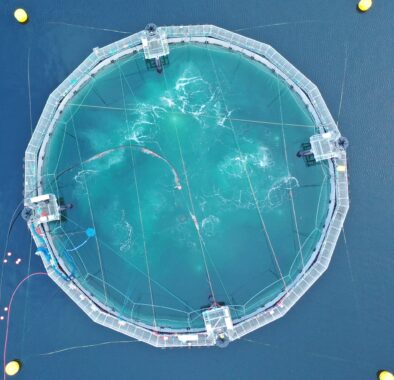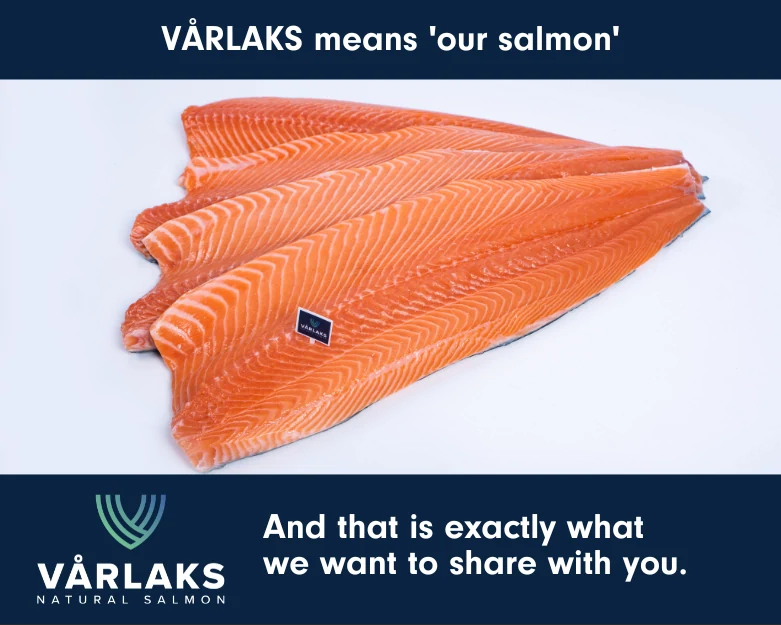Cermaq Canada Managing Director David Kiemele has spoken publicly about the upheaval facing British Columbia’s farmed salmon industry, saying Canada’s recent decisions threaten to undermine the industry’s progress.
Cermaq Canada was already on the road to transitioning toward more sustainable and more efficient operations by investing around $60 million in the last five years on innovative sea-lice-management technologies, said Kiemele, but the federal government’s December 2020 decision to close 19 Discovery Islands salmon farms, and the June 2022 decision to extend the 79 farmed salmon licenses by two years – instead of the six-year term that the industry asked for – are having the opposite desired effect.

“The uncertainly at the moment for the industry is staggering, but also quite avoidable,” Kiemele told participants at the Vancouver Island Economic Summit 2022 held in Nanaimo, BC recently. “If I sat here five years ago and thought to myself that I would have agreements with Indigenous Nations to farm those sites but others wouldn’t let me, I’d have thought that’s crazy. But that’s where I am today.”
Turning point
Kiemele, who took the helm at Cermaq Canada in 2017, pointed to the December 2020 decision made by then-DFO Minister Bernadette Jordan as the time when the proverbial “stuff” hit the fan. (Some in the industry would probably go further back than that and point to the October 2019 Canadian federal election campaign as the pivotal time, for that was when Prime Minister Justin Trudeau made the promise to shut down BC’s ocean-based salmon farms by 2025, if he was re-elected. The minister was following his orders.)
“There’s a misconception that the industry is afraid of change, or doesn’t want to innovate or transition, but nothing could be further from the truth. My company alone, in the last five years, has spent $55 million to $60 million on innovative technologies to make sure we can achieve standards related to pest management, a.k.a. sea lice, that are being set by our Indigenous partners, not by our federal regulators. These are actually standards that are more stringent than the standards that we’re regulated through by the federal government.
“We are looking at adaptive ways to grow fish in our oceans because, guess what, we’re going to need to regardless of whether or not it’s Atlantic salmon, or shellfish, or kelp or sablefish. We need to look to our oceans to produce food. We grow food locally; we sell it locally.”

However, not having the “stable platform that I need to actually deliver on those results,” has undermined his confidence to further invest in innovation and technology, he said.
“We were on a path to continue to transition to drive improvements in results, but recent actions, recent decisions, recent policies have put a halt to exactly what we’re asked to do. So, being asked to innovate, being asked to move things forward – but without a stable platform that I need to actually deliver on those results… I had to cancel purchases of semi-closed cages because of decisions taken, two years ago now, by the previous minister.”
Conundrum
Kiemele added that three years ago, Cermaq Canada farmed 27 (growout) licenses, but today it farms 19.
He said he’s at a loss as to what to do given that the DFO extended the licenses for two years only, instead of six.
“Our business basically runs on a six-year cycle. I don’t buy my fish to put in my pens from somewhere else. I grow fish to become parents, those parents produce offspring, those offspring go to a freshwater hatchery on land and then they’re transferred to our seawater sites. That process takes six years. How am I standing here today with two-year licenses understanding what to do? Well, the answer is I don’t,” he said.
Cermaq and the industry at large already have the consent of Indigenous partners to farm ocean sites, but the federal government “won’t allow me to stock those sites with fish,” Kiemele said further.
He closed his speech by asking the federal government for a chance to farm local waters, noting that salmon for consumption by Canadians would have to otherwise come “from a place far, far away, and that takes a lot of greenhouse gases to bring them here.”
“Give us an opportunity to do that – and I can speak for my colleagues that aren’t here (in this room) today – we’ll knock it out of the park. These things don’t happen quickly. Should they have happened years ago? Absolutely. But let’s look forward, not back.”









